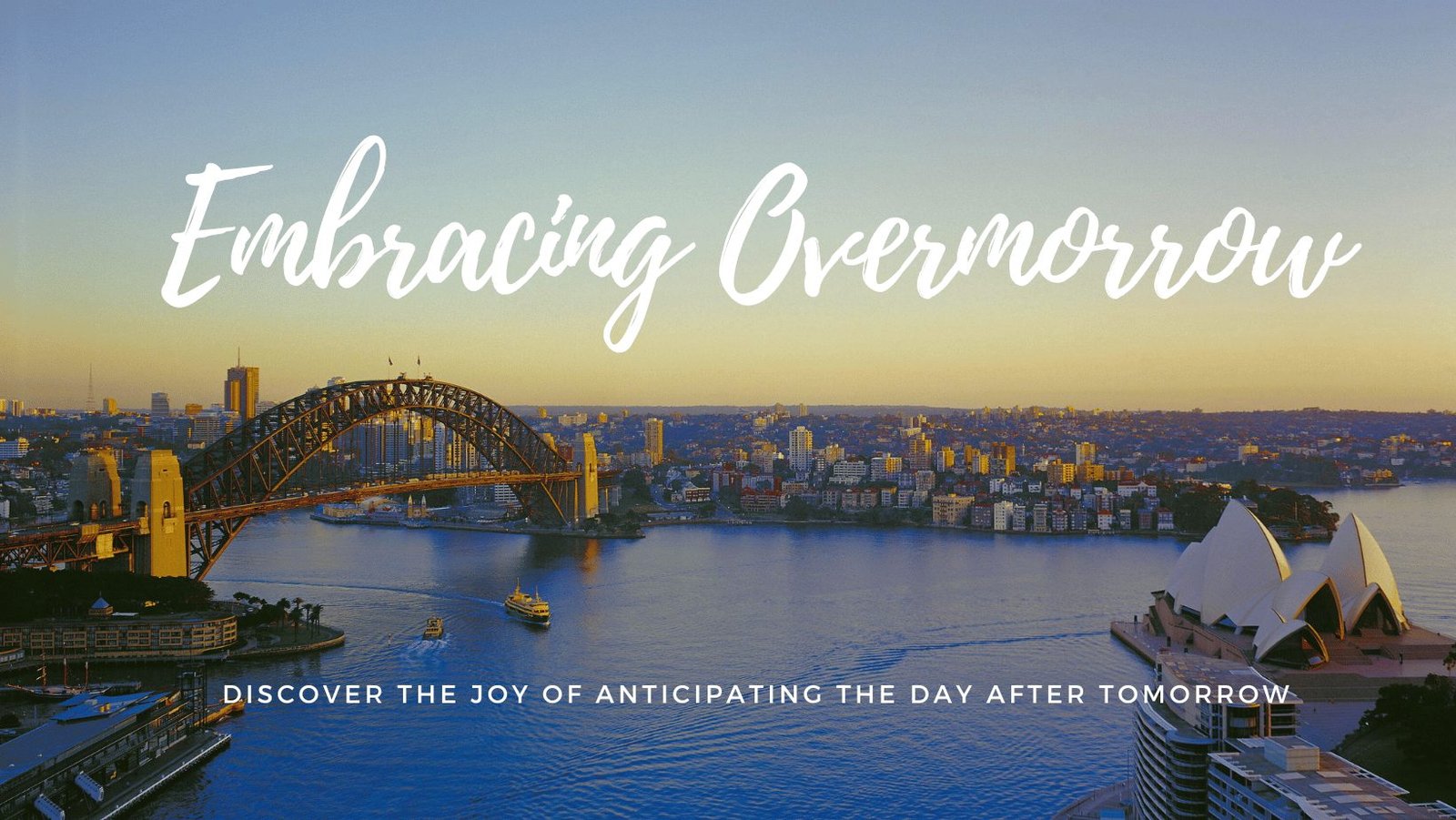Have you ever found yourself longing for a word that perfectly captures the feeling of looking forward to the day after tomorrow? That word is “overmorrow” This article explores the linguistic charm, psychological benefits, and practical applications of this almost forgotten term, inviting you to embrace the anticipation of what lies beyond tomorrow.
The Linguistic Journey of Overmorrow
“Overmorrow” hails from a time when English was interwoven with Norse languages, reflecting the rich tapestry of linguistic history. Its etymological roots can be traced back to the Old English “ofermorgen,” which itself is derived from the Norse languages that influenced English during the Danelaw period. While “overmorrow” has fallen out of common usage, it remains a testament to the dynamic evolution of language.
Psychological Benefits of Anticipating Overmorrow
The concept of overmorrow isn’t just linguistically interesting; it has tangible psychological benefits. Anticipating the day after tomorrow encourages a forward-looking mindset, which psychologists have linked to increased happiness and life satisfaction. It’s a mental leap that allows us to plan and dream, creating a bridge between the present and a hopeful future.
Overmorrow in Literature and Communication
Literature has long celebrated the concept of overmorrow using it to convey a sense of future promise. Its rarity adds a layer of depth and intrigue to communication, offering a precise term for a common temporal concept. Reviving “overmorrow” in everyday language could enrich our conversations with nuanced expression.
Practical Applications of Overmorrow
Incorporating “overmorrow” into our daily vernacular can have practical benefits. It can serve as a linguistic tool for planning and goal-setting, providing a clear temporal marker for tasks and aspirations that are just out of immediate reach. It’s a word that can help us organize our thoughts and actions with an eye towards the near future.
The Joy of Anticipation
The joy of anticipation is a powerful emotion, and “overmorrow” encapsulates this feeling. It’s the excitement of a planned trip, the eagerness for a loved one’s visit, or the thrill of an upcoming milestone. By embracing overmorrow we allow ourselves to revel in the pleasures of anticipation, enriching our emotional landscape.
Conclusion
“Overmorrow” is more than just a word; it’s a concept that invites us to look forward with optimism and excitement. By adopting this term into our daily lexicon, we can add a layer of richness to our language and our lives, fostering a culture that cherishes the future and all its possibilities.
Also Read: Shared Joy is a Double Joy; Shared Sorrow is Halved
FAQs
Q: Is “overmorrow” recognized by modern English dictionaries?
A: Yes, “overmorrow” is recognized by several dictionaries as an archaic or literary term that means “the day after tomorrow.”
Q: Can “overmorrow” be used in formal writing?
A: While it can be used in formal writing, “overmorrow” is best suited for literary or creative contexts due to its archaic nature.
Q: Are there any modern efforts to revive the use of “overmorrow”?
A: There are occasional mentions and discussions about “overmorrow” in language forums and among linguistics enthusiasts, but no widespread movement to revive its usage has been noted.
Q: Does “overmorrow” have equivalents in other languages?
A: Many languages have their own equivalent of “overmorrow,” such as “übermorgen” in German and “pozítří” in Czech, which also mean “the day after tomorrow.”
Q: Why might “overmorrow” be a useful addition to our vocabulary today?
A: “Overmorrow” provides a concise and specific term for “the day after tomorrow,” which could enhance clarity and brevity in communication.

